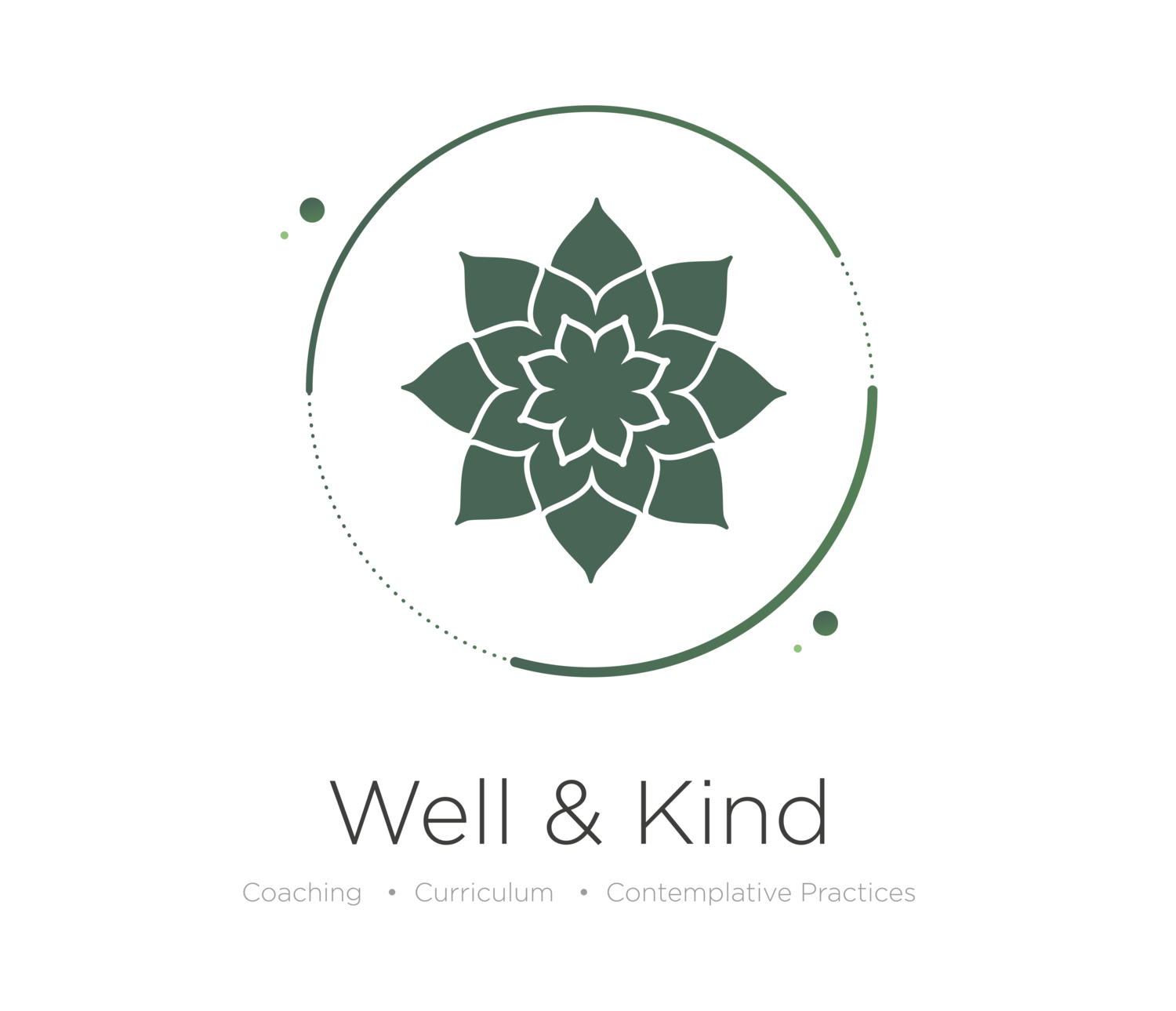Interview: Jayne Gumpel, LCSW of Access Mindfulness and Mindful Harlem
Jayne Gumpel, LCSW is a co-founder of Mindful Harlem, a non-profit organization offering Mindfulness-Based Stress Reduction courses as well drop-and-sit meditation sessions which are open to the public. Jayne is also the founder, along with her son David, of Access Mindfulness, a nonprofit organization bringing mindfulness education and awareness to schools and other youth-centered organizations. Jayne points out that the youth are not the sole beneficiaries of mindfulness practices. Access Mindfulness offers free orientations and consulting in an industry where half of teachers burn out and leave teaching after five years. Empowering teachers with the skills to facilitate their classrooms mindfully provides educators and students alike with a solid support for the challenges of day to day life.
Full disclosure: I love Jayne.
I came to know Jayne when she accepted me as an intern for Access Mindfulness (formerly Mindful Schools NYC) and over the course of the year that I worked with her, I came to understand my practice not just as a lifeline to cope with perceived emergency after perceived emergency in my life but as a way of approaching my existence in all of its moments—joyful, mundane or terrifying. Jayne is the embodiment of mindfulness as life, and here she was kind enough to share her perspectives on mindful parenting, a more diverse mindfulness movement, and the one thing she wishes everyone in the world knew. Spoiler alert: we bond over Pema Chodron.
Well & Kind: Hi Jayne. My first question for you is why mindfulness and why Harlem? What led you to this path?
Jayne Gumpel: I got exposed to meditation when I was nineteen or twenty. I had read Autobiography of the Yogi which blew my mind growing up in a working class Long Island neighborhood. When I was sixteen, I spent half my school day working at the world’s largest psychiatric hospital, and I had tremendous compassion for the people who were residents there. I found that meditation and mindfulness, at least my rudimentary understanding of it at that time, helped me sustain my capacity for being compassionate but at the same time it kept me balanced. It’s a rough road for caregivers; who helps the helper? Who heals the healer? So I’ve always been interested in how to stay present and at the same time give to other people.
It wasn’t until after I got married and had kids that I became much more serious as a meditator and about looking into becoming an MBSR teacher. Parenting—especially single parenting, I got separated when my youngest was two and half—is tough. I had to really look at parenting as a spiritual practice, and not from the perspective of a reactive person. I had a child with a lot of special needs, and I got a divorce, and in the midst of all of this I reached out to the MBSR community to take the class and then started to work through what I needed to do to become a teacher. It worked out really well for me to have that structure; I needed the community, the sangha that came along with it. That was really important to me.
WK: I love the way you call parenting a ’spiritual practice’. I’m a new mom, and for me there is something transcendent about spending your days with a person so small, who doesn’t live in the past or in the future.
JG: Absolutely. And I think parenting is the most important place in to be mindful in our lives, to not be parents who are unconsciously, unintentionally wounding our children, is critical because our world is crazy right now. I think viewing parenting as a spiritual practice is enormously helpful because you’re feeling so alone in that moment, especially as a single parent, where there is absolutely no validation for what you’re doing. You have to live a path of nonviolence in the way you talk to them, and to yourself. I tell my kids that they are just on loan to me through their tender years, and it’s my job to nurture them through it to be sure that I am guiding them and not hurting them unintentionally.
WK: That’s a phenomenal parenting perspecitve. Imagine if everyone took that view of childrearing. How much kinder would our world be?
JG: Well, that fact is often lost on children so you have to view it as your own personal spiritual practice— it’s not about getting any kind of accolades or acknowledgement from our children, that’s just gravy on the potatoes. It’s about me wanting to be the best I can be, so I benefit from that.
WK: And with that mindset, you can stay anchored in your sense of self for when your child does achieve that independence.
JG: ..Or when they self harm or take drugs. If I internalized those events as being a direct result of my parenting, I would be so overwhelmed, and I would take that out on my kid. So if I continue to regard it as a spiritual practice, to raise them as best I can, it’s okay. If you have a child who will never be able to express understanding of the sacrifices that you have made for them, you have to know that your spiritual practice was the best that you could do for them and for yourself.
WK: That’s mindfulness right? Sitting with yourself through the muck, even when it’s not birds singing and sunshine.
JG: Right, and it’s often not. It’s choosing to come to the present moment with my heart and mind open even though it’s very challenging and difficult. That’s not to say there’s not a lot of beauty, but it helps you also compartmentalize. Parenting really opened my eyes to the benefits of mindfulness and meditation for myself and for the people around me. I think anybody who chooses a nonviolent or spiritual path, that’s a gift to the people in their life.
WK: But the way that wellness is marketed, it doesn’t acknowledge that dark component, it’s marketed with an eye to brighter, cleaner, richer, thinner. Wellness seems very expensive, and not very diverse.
JG: Well that’s why I felt compelled to go up to Harlem, I was born into privilege because I was born white. I have always felt ashamed of the blatant racism and segregation and social injustice on every level in our country. And at the last retreat I was at, five or six years ago, I looked around and said to my colleague Adrian, there’s something wrong here. All I see are upper class white women. I decided that I was going to put my efforts toward exposing more individuals, especially kids in public schools, to mindfulness. So we started behind Adrian’s restaurant sitting with just a few people who dropped in to sit, and more and more came, and I think we were pretty successful with that. Now I’m focusing my efforts in the schools.
WK: Why was the retreat you went to not more diverse?
JG: We need more teachers from minority communities to teach mindfulness, but it’s the more affluent schools that have the budget to bring in people and instruct them. There needs to be fewer barriers for young people of color to be able to learn mindfulness and then go back into the communities they live in, to say hey, I have this thing that can help social and emotional learning.
WK: Are there initiatives that you know of in the States aside from Access Mindfulness that is working to train more people of color to teach MBSR?
JG: Insight Meditation Society just started a full-time, two-year program to train instructors of deeper meditation practice, and it is mostly geared toward people of color. They are offering scholarships to as well. We have to continue to work to find opportunities for people who are inspired by this to go out and learn it.
WK: What would you say is a good first step to get started for people who are not from a background that is open to mindfulness? What is something that people can do to being to cultivate a mindfulness practice or just lead a more peaceful life?
JG: Now we have these wonderful apps like Headspace and Insight Timer. We have Drop & Sit Sessions at Mindful Harlem, that’s up at Frederick Douglass and 119th [in New York City] on Saturday’s. There’s also the Tibet House, Insight Meditation Society. There are now yoga studios that offer a mindfulness practice; so there are ways if people are interested in it, they can just stick their toe in it now.
WK: So there are a lot of ways that people in our area can get involved, but what would you say to people out in rural Indiana who feel like something’s missing but the idea of meditation is not at the forefront in their communities?
JG: Well, now there’s MBSR online (which is not my preferred method but it’s better than nothing) and there are now people who are doing MBSR in real time online as well. If I lived in rural Indiana, an app like Headspace is a good way to start. They’ve got 5- to 45-minute guided meditations. That’s great, because the bottom line is, it’s all about the practice In order to understand what mindfulness really is. You can talk about it till the cows come but you’re never going to get it if you’re not sitting regularly.
WK: With all of your years of experience as a meditator, a parent, a social worker, an entrepreneur, a resident of the earth, that you wish everyone knew?
JG: That we’re all connected and that separation is an illusion. And, you know, learn how to value and respect your own voice, which can be tethered to loving kindness. Everybody has the inherent capacity to be a compassionate person, even though we’re all wounded. We haven’t evolved yet as a species to not wound each other, to not wound our own children—even with the best intentions, parents wound their children because of the way we interpret reality. If we could all recognize who we were, and that we actualize ourselves through the practice of loving-kindness, we wouldn’t be so harmful to others, or to ourselves.
I would also turn the world on to Pema Chodron’s books.
WK: Absolutely, yes. I have annotated my copy of When Things Fall Apart until it is the thing that’s fallen apart.
JG: She’s a beautiful human being. Her books can inspire people to open the door to their own soul—to meditation, to self-actualization.
WK: Where can people get in touch with you and your organizations?
JG: If people are interested in bringing MBSR to their youth-centered organization, whether that’s a school, after-school program, treatment center, really anywhere that serves youth, if they want a free orientation or consultation they should call us. They can reach us at groupworks@aol.com or go to the Access Mindfulness website here.
WK: I appreciate you Jayne. Thank you.

















